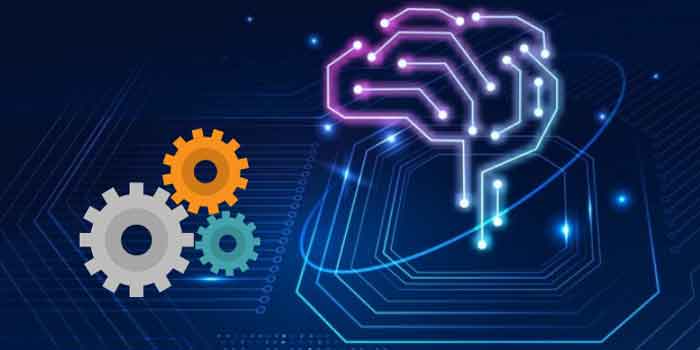Artificial intelligence and machine learning are already in the digital marketing world. With the advent of these technologies, people's interaction with technology, data, companies, products, and services has changed dramatically. For example, Google Assistant can hold a real-world conversation utilizing speech recognition and language understanding. AI and ML-enabled systems can process massive amounts of data and deliver metrics that marketing teams can understand easily. Businesses use these technologies to understand their target customers better. But as machine learning is a subset of artificial intelligence, we can’t see the impact of both in SEO separately. They work collectively to modernize search engine optimization techniques. Let us find how AI and ML play an important role in SEO:
Better content and strategy:
According to statistics, Google processes around 63,000 queries per second. Because users want precise and relevant results, they don't type in many words; instead, they go for long sentences with a conversational tone. So, it is hard for search engines to provide users with the exact search result they want. AI and ML have given a new direction to the searches, and they assist search engines in comprehending visual content. Web browsers can now perform voice searches and grasp what images and videos are truly about to understand better. As a result of this trend, organizations are being pushed to develop and implement a sophisticated content marketing strategy that can better connect with visual and voice search.
More productive search marketers:
Digital marketing is becoming more difficult with each passing day. Identifying the search trends that will help enhance sales requires a lot more than dreams. When marketers need to create more initiatives across various marketing channels, the situation becomes exponentially worse. Digital marketing analysts have a huge opportunity to gain a competitive advantage and solve their ever-increasing problems. Many industry leaders have employed AI solutions to increase their productivity and grow their businesses.
Enhanced web design:
AI and machine learning have advanced to the point where they can now assist marketers in creating better websites based on real-world experiences. Suppose you had a mLearning platform and could not decide where key design elements go to provide your consumers with the most accessible services feasible. Many apps like Grid use user-supplied data from various sources to "suggest you" where to put things like text, menus, graphics, and CTAs on a web page. These apps will examine how users engage with your platform and eliminate all guesswork from the equation. You get to create a better, more natural service, and it may also apply the same improvements into UX using AI algorithms. You may gather and analyze various data, including location, demographics, and even the devices used, and then utilize AI to provide more relevant content to each of these types of users.
Voice search:
The pandemic has persuaded lockdown users that digital assistants and voice searches can be necessary for daily life. The growth of the voice search market has increased. So, Google's deep learning algorithm reads the language of user searches and detects not just what they're searching for but also how they're seeking, similar to how NLP approaches can determine rank. Because voice searches are conducted conversationally, contemporary SEO optimization for long-tail inquiries and top rankings for relevant keywords are required. These techniques also result in a Featured Snippet placement on Google's SERP to end up as voice search results. SEO Perth services pay special attention to these things.
Customized emails:
AI and machine learning can help marketers maximize email efforts. They can target ads based on preferences and previous user actions and automate tasks. You may also use AI to find the optimal time to contact someone during the week. Your users can have drastically diverse interaction patterns. You can use data from their previous activity to determine when they're most active.
Chatbots:
Almost certainly, you've heard of the rise of the machine learning chatbot. Perhaps you've already had a conversation with a robot on a company's website. However, what is the relationship between chatbots and machine learning, and how are they affecting digital marketing? In simple terms, a chatbot is a virtual robot that can communicate with humans via text, voice commands, or both. Many major firms, including Apple's Siri, have integrated chatbots into their user experience. Siri and other chatbots can run searches, provide answers, and even tell you when the next bus will arrive.
Conclusion:
We can conclude that the focus has switched from bulk advertising to a more micro-targeted approach. Marketers can generate amazing outcomes with machine learning algorithms, and there are wonderful possibilities that come with great challenges. As customer expectations rise, marketers have the chance to deliver personalization and relevance on a large scale. This can be accomplished through customized campaigns based on real-time customer intent. AI and machine learning can help make campaigns more relevant. AI and ML are an indispensable part of each other and have a huge future scope in SEO.















No comments: